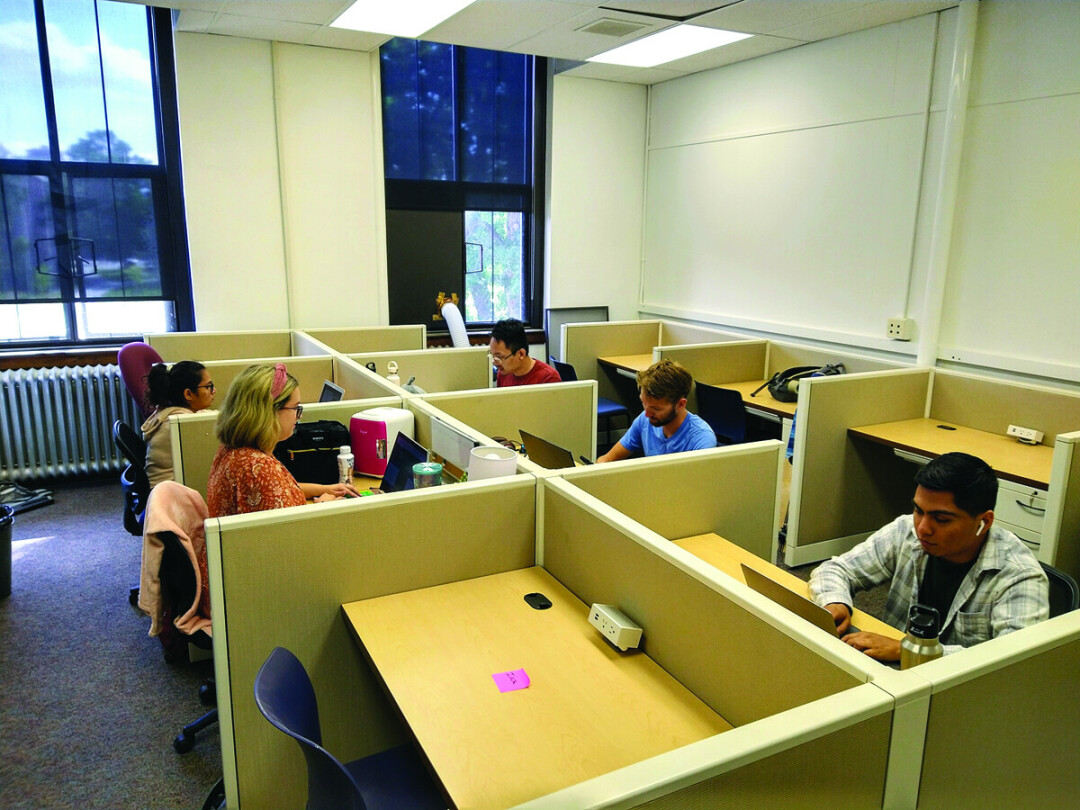How Mental Health Is Affecting The Workplace
For decades, the phrase “mental health” has been considered a taboo topic; we have focused on physical health, a youthful appearance and longevity for generations. Today, mental health is front and center, both for society in general and, more and more, in the workplace.
It’s no secret that the economy is currently an employee’s market. After the pandemic, and as the baby boomer generation begins to retire, there is a massive staffing shortage across the nation. Businesses are struggling to find employees, and it’s not just because of the worker shortage.
Many job-seekers are putting their mental health first, considering only those companies that truly care for their employees, and offer resources to enhance their well-being on every level.
Sjon Quinn, a psychology Ph.D. student at Montana State University and manager of a landscaping business states, “Current jobs are not paying enough to cover the basic cost of living, which now includes necessities like a car, phone, and internet service. These things weren’t necessities back in the day, and are overlooked in the basic cost of living. With it being an employee market, these jobs are not only offering unsubstantial wages, they aren’t offering additional incentives to make the work environment enjoyable. With mental health being so important today, employees are looking for jobs with great management, communication, opportunity, and health benefits. In this economy, many are willing to switch to a company that does, or wait.”
Local resident Devin Reppe has worked in the construction field for many years, now owns his own business, and shares his perspective on the benefits of working for a company that cares. “It’s important to have a good crew and good management. With my crew, I run a very family-first mentality. As a leader, it’s important to know where my crew is at, especially for safety reasons. But it also opens up a line of communication between the crew and me. When they know that we care about them, giving them that day off to attend to their kid, they’re going to feel comfortable and try harder for us.”
Kelcey B., who works in a local retail store and manages a small team within the company, dives deeper into the importance of what it is like to care for your employees. “It’s important on an individual level for your team to take their breaks, get up, walk, and step away when needed. You must take care of yourself first. Make sure you have a stress reliever, whether it’s working out, walking outside, going fishing, or whatever that outlet is. It’s important not to let it fall to the wayside.” Kelcey also mentions that communication and expectations are important for her team to stay grounded, less stressed, and more productive. “We have meetings to lay out the structure for the week, and the expectations. I try to be at the forefront of communication and what’s happening. At the end of the week, we review how the week went to make changes for next week.”
Those extra incentives are becoming more important to people in the workplace, especially the basics like paid time off, insurance, strong management, communication, and a friendly work environment. Some companies are starting to recognize how important mental health is for their employees, and are going beyond the necessities. Companies like Strategic Education, AT&T, Microsoft, and Pinterest are starting to offer mental health benefits. Strategic Education offers a variety of mental health benefits and outlets for its employees. Having worked there, I experienced the benefits of monthly support circles, six free counseling sessions, discounted therapy, paid time off, and a team of people we could talk to if needed.
Microsoft has a program specifically designed around mental health. Microsoft Cares offers a variety of support for mental health including support circles, workshops, in-person, digital, and telephone counseling. Pinterest is another company that offers a specific program designed around mental health. Their program is called “Pinside Out” and offers wellness-focused events for their employees. These events vary from meditation sessions to speakers covering a wide variety of topics inside and outside of the workplace.
It’s not just companies and the work environment that are beginning the change around mental health. Many colleges and universities are starting to recognize how important mental health is for students, as there is increasing pressure to be successful. Recent college graduate, Sidney Whitlock, discusses the added pressures she felt as a Chemical Engineer major her senior year of college. “Being an engineering major, there’s a lot of added pressure placed on students, affecting stress levels and mental health. One of those added pressures included living up to the major. If you’re an engineering major, most people assume you’re smart and in a competitive field that creates a lot of pressure to live up to those expectations. Everyone was constantly comparing grades with each other because by senior year, the expectation is to have an internship or job while maintaining high grades. It became too much for me. I need to focus on graduating and decide to worry about a job after. After graduating, I took a gap year for my mental health and found a job in a different field I enjoy.”
Connecticut College beginning to prioritize student wellness, starting with having a full-time director for student wellness. The director focuses mostly on the education of drug and alcohol use but also implements activities and lessons on physical and mental health in the classroom.
The University of Oregon has a dedicated program for student wellness called “Duck Nest,” located in their student center. This program offers a safe space for students, as well as activities such as meditation, therapy dogs, healthy eating on a budget, and more. Duck Nest is so passionate about wellness that they’re trying to offer their services to the community as well!
The world is starting to recognize the importance of mental health in the work field, in school, and in everyday situations. As society progresses in making changes around mental health, it’s important to remember to care for yourself physically and mentally.

